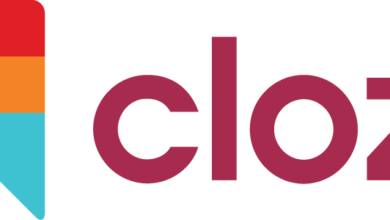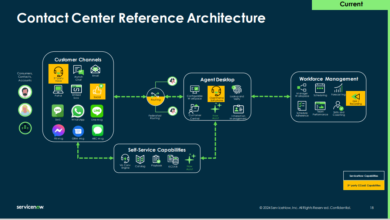How CRM Tools Drive Sustainability for Small Businesses

Small businesses are the lifeblood of economies worldwide. Over 33.2 million small businesses in the United States employ almost half of the American workforce, accounting for 43.5 percent of GDP. It’s also a highly competitive space that brings its challenges—building brand recognition and earning consumer trust while also competing for market share, funding, and employees means that over 20 percent of small businesses fail in their first year, 50 percent fail within five years and around 65 percent don’t make it to ten.
So what sets the 35 percent that make it to their tenth anniversary apart? There’s no magic formula, but anticipating and adapting to the consumer mindset and implementation speed are often crucial markers. The title of Jason Jennings and Laurence Haughton’s bestseller says it all: “It’s not the big that eat the small…it’s the fast that eat the slow.” In the book, Jennings and Laurence challenge the conventional wisdom that large companies are unbeatable through their superior resources. They argue that resources are great, but speed is key—and this is where larger companies can’t so easily compete. They’re generally slower to react and respond to emerging trends and shifts in the consumer landscape and can be more conservative in their approach. After all, it’s harder to turn around an oil tanker than it is a canoe.
The Shift Toward Sustainability
One of the most significant shifts in recent years is the move toward sustainability. Consumers have decided that sustainability is crucial to their decision-making process when purchasing products. In PwC’s recent Global Consumer Insights Pulse Survey, over 70 percent of respondents said they would pay more for sustainably produced goods “to some or a great extent.” Drilling further down in a subsequent survey, 40 percent of respondents said they’d pay 10 percent above the average. Millennials and Gen Z were the most open to spending more for the sake of sustainability, indicating that this is a trend that’s here to stay.
That’s why small businesses need to take action on sustainability if they haven’t already, and for those businesses who’ve already started to continue along that path. The most significant areas of opportunity may differ from industry to industry, but the CRM space is an underleveraged area across them all.
Three Ways CRM Tools Boost Sustainability Efforts
At first glance, a CRM tool might not seem to have much in common with a move towards more sustainable practices, but the two are closely intertwined. From a business perspective, CRM tools and sustainability focus on the same key areas: increasing efficiency, reducing waste, and building long-lasting customer relationships based on shared values and goals.
1) Resource Allocation
This is one of the fundamental ways in which CRM tools increase sustainability. Cloud-based solutions reduce the need for paper documentation and physical storage space. Digitizing customer interactions and invoices minimizes the carbon footprint and boosts operational efficiency.
CRM analytics can also highlight problem areas for a business, including inefficient, wasteful practices. For example, Pipedrive and other CRM tools use automation to eliminate manual, repetitive tasks such as lead nurturing and follow-up communications. The saved time can be better directed towards high-impact, strategic activities around sustainable practices. One of the biggest roadblocks for companies looking to become more sustainable is finding the time and resources to do so.
2) Customer Engagement
The true measure of a CRM tool is whether it helps a business to develop stronger relationships with customers. The stronger the relationships, the more effective the CRM tool and, subsequently, the more sustainable a company becomes.
Businesses can segment their customers more effectively by using required, important, and custom fields in a CRM tool, allowing them to develop market campaigns accordingly. By sending the right messages to the right customers at the right time, small businesses can minimize unnecessary marketing spend and reduce the environmental impact that often comes with mass advertising.
CRM tools also facilitate better communication and feedback loops with customers. This allows businesses to quickly gather insights, address concerns, and continuously improve their product and service offerings for their customer base. This iterative approach enhances customer satisfaction and better anticipates customer needs but also helps reduce product returns and waste, ensuring a business model focused on sustainability.
3) Supply Chain Transparency
Sustainable business practices are built on efficient, collaborative, and transparent supply chains. CRM tools help businesses track product lifecycles and provide greater visibility and accountability across the supply chain. Optimization has the immediate knock-on effect of minimizing waste, reducing carbon emissions, and ensuring ethical sourcing practices.
Enhancing the transparency of the supply chain also allows businesses to work more closely with suppliers, partners, and even customers to drive collaborative sustainability initiatives. By leveraging collective expertise and resources, companies can implement innovative solutions that benefit the environment and the bottom line, such as sustainable packaging, renewable energy sourcing, and waste reduction programs.
The Move Toward a Greener Future
In a world where sustainability is no longer a nice-to-have but a need-to-have, small businesses must leverage every available tool to drive positive change. CRM tools can drive business growth while positively impacting the environment by optimizing resource allocation, enhancing customer engagement, and promoting supply chain transparency. By championing both sustainability and the value of CRM tools, we can inspire small businesses and customers alike to strive toward an even greener future.



